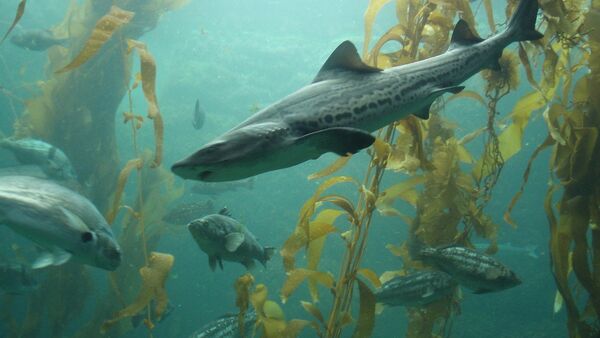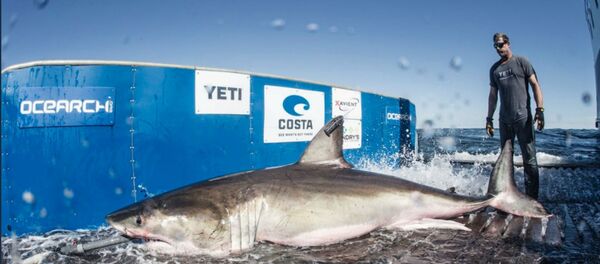"I'm very confident that in these animals there's Miamiensis avidus. We have a very good species-level identification at the molecular level. The RNA we see in there is quite specific to this species," Hanna Retallack, a MD-PhD graduate student at the University of California, was quoted by National Geographic as saying.
Earlier this year, hundreds of leopard sharks were found dead in a number of areas, including beaches in Foster City, Hayward, San Francisco and Berkeley.
#UnexpectedlyCute Leopard Shark. They like a good pet on the back. The MN Zoo has these & guests are allowed to pet them. ❤️ pic.twitter.com/itpQ8Oqrpp
— A🦉 (@TheLandofAWS) 26 октября 2017 г.
Subsequent molecular analysis of the killed sharks' cerebrospinal fluid prompted researchers to point the finger at the Miamiensis avidus parasite which they said cause similar symptoms in other inhabitants of the sea.


